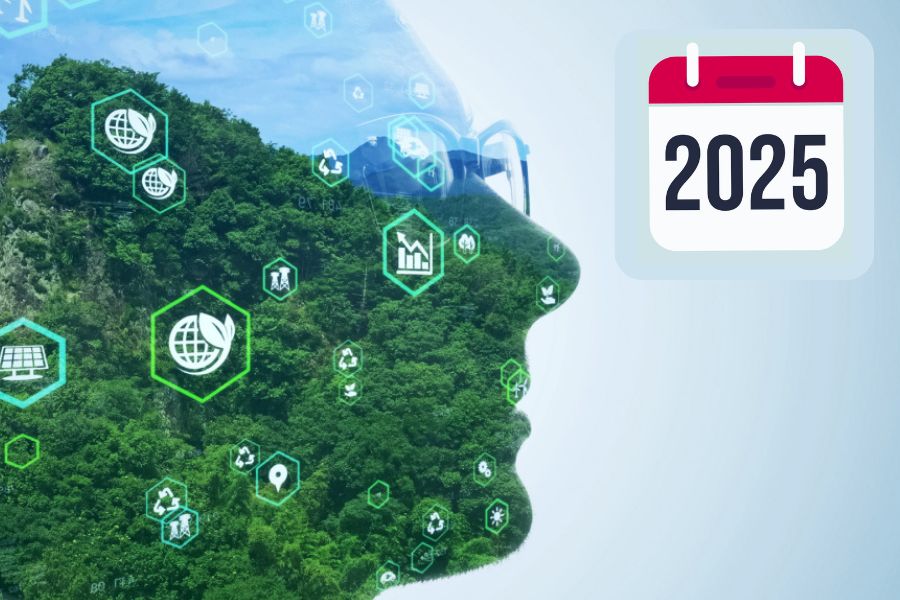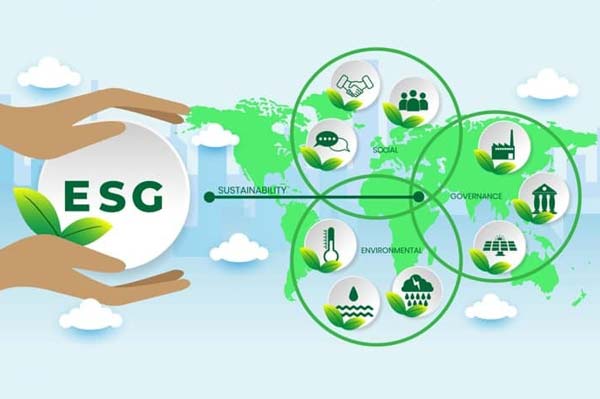1. Enhanced Regulatory Frameworks
Regulatory scrutiny on ESG disclosures will intensify, with frameworks like the EU’s Corporate Sustainability Reporting Directive (CSRD) and the anticipated SEC updates on climate-related disclosures. Companies must report comprehensively on greenhouse gas emissions, climate risks, and broader sustainability metrics. This heightened regulatory environment will drive greater transparency and accountability, compelling businesses to align their strategies with regulatory expectations to avoid penalties and enhance their corporate reputation.
2. Focus on Climate Adaptation and Resilience
The urgency to address physical climate risks will push companies to invest significantly in climate adaptation and resilience measures. Businesses will develop infrastructure to withstand extreme weather events, incorporating climate risk assessments into their strategic planning. Additionally, there will be a heightened focus on the health impacts of climate change, prompting companies to ensure that their operations do not exacerbate health vulnerabilities in affected communities.
3. Growth of the Voluntary Carbon Market
The voluntary carbon market (VCM) will experience substantial growth as new integrity guidelines enhance the quality and transparency of carbon credits. Companies will increasingly rely on high-quality carbon credits to meet their decarbonisation goals. This trend will foster innovation in carbon sequestration technologies and project development, particularly in emerging markets where financing for climate mitigation projects is critical.
4. Integration of AI and Technology in ESG Reporting
The integration of artificial intelligence (AI) and advanced technologies in ESG reporting will revolutionise data collection, analysis, and governance. AI will enable companies to automate data gathering, improve the accuracy of ESG metrics, and enhance their ability to meet regulatory requirements. This technological advancement will also facilitate more detailed and real-time reporting, allowing stakeholders to make better-informed decisions regarding sustainability.
5. Increased Litigation Around ESG Claims
Companies will face an uptick in litigation related to ESG issues, particularly greenwashing and failures to meet environmental commitments. High-profile cases will underscore the importance of accurate and transparent ESG communications and disclosures. To mitigate litigation risks, businesses will need to implement robust ESG frameworks and ensure that their sustainability claims are substantiated by credible data.
6. ESG in Supply Chain Management
The sustainability impacts of supply chains will come under greater scrutiny, compelling businesses to ensure that their suppliers adhere to stringent ESG standards. This will necessitate comprehensive reporting and sustainable practices throughout the value chain, including ethical sourcing, reduced environmental footprints, and fair labour practices. Companies will benefit from enhanced risk management and improved supplier relationships by promoting transparency and accountability in their supply chains.
7. Corporate Accountability for Climate Action
Governments and investors will increasingly hold companies accountable for their climate action plans. Transparent reporting on progress towards net-zero targets will become critical, with significant pressure on businesses to align their actions with their stated commitments. This will involve setting and achieving science-based targets, disclosing climate risks and opportunities, and demonstrating tangible progress in reducing emissions.
8. Sustainable Finance and Investment
The financial sector will continue to innovate with new sustainable finance products, integrating ESG criteria into investment decisions. Green bonds, sustainability-linked loans, and other financial instruments will be crucial in funding projects that contribute to environmental and social goals. Investors will demand greater transparency and accountability from companies, driving the adoption of sustainable practices and responsible investment strategies.
9. Health and Climate Nexus
The nexus between health and climate change will gain prominence as the impacts of climate change on public health become more evident. Companies must address issues such as access to clean water, food security, and the health implications of extreme weather events. This will involve developing climate-resilient health systems and integrating health considerations into their sustainability strategies to protect vulnerable populations.
10. Biodiversity and Natural Capital
Biodiversity conservation and the sustainable management of natural capital will emerge as critical components of ESG strategies. Businesses will increasingly recognise the economic and ecological importance of biodiversity, integrating nature-based solutions into their operations. This will involve protecting natural habitats, restoring ecosystems, and promoting sustainable land use practices. Companies that proactively manage their natural capital will not only mitigate environmental risks but also enhance their long-term resilience and sustainability.



